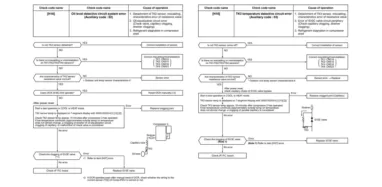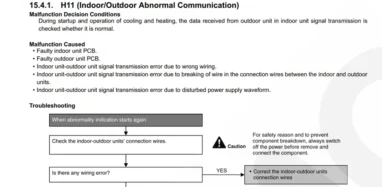As winter draws closer, one of the realities you will have to deal with will be how to protect your family from the severe cold that comes with the season. Ideally, this should be a herculean task for you, but with several innovations within the HVAC industry, you may have little to worry about as there are now lots of ways you can deal with winter discomfort.
However, with the recent clamor for the use of environmentally friendly appliances, your choice may be limited. One of the limited available options is the air source heat pumps, as they are low-carbon home heating devices. Only that it can be generally expensive, which is why homeowners are curious to know, “why are air source heat pumps so expensive?”. You will find out the possible causes in this article, don’t miss out on the details.
Why are the air source heat pumps so expensive?
The two major factors responsible for the skyrocketed price of air source heat pumps are your heat requirements and the efficiency of the low carbon heat pump you are installing. Albeit other factors may contribute further to their inflated prices during installation. Check below for details.
Heat requirement
The size of your property will determine the heat required. The general rule of thumb here is that the larger your property, the larger the space that will need to be heated; consequently, the larger the heat pump you will have to get. Therefore, since larger air source heat pumps mean higher efficiency, that is usually more costly.
The heat pump efficiency
By saying efficiency here, I do not mean how powerful your heat pump is to supply heat into your building; rather, I am referring to the ability of your appliance to supply the required heat with the lowest electricity consumption. Unfortunately, appliances with this feature come with extra innovations, which is why they are often expensive. So if your air source heat pump rolls towards the side of efficiency, it will be expensive.
Installation simplicity
The easier it is to have an air source heat pump installed, the lower the cost and vice versa. Unfortunately, things may be difficult at times and don’t always go the way we want them, which is why some installations can be more complicated. Such installations are usually costlier because often time, they require additional work and time.
Why are air source heat pumps so expensive to run?
Relatively, air source heat pumps are not expensive to run compared to other traditional home heating systems like the gas heating system. However, in some situations, air source heat pumps can be expensive to run. You will find details below.
Extreme weather
In extreme weather: when the weather is too cold or hot, air source heat pumps use more electricity to generate heat. When there’s an increase in electricity consumption level, the efficiency of your heating appliance will be reduced, leading to incremental running costs.
Poor installation or inappropriate placement
Sometimes, the positioning of your air source heating pump may be responsible for the high cost of running the appliance. When installing an air source heat pump, make sure it is placed in the way of excessive wind because even though they make use of outside air, air can still interfere with its effectiveness if they become too excessive. If your heat pump is placed where it can be exposed to a lot of air, it will be using more than the required energy to extract the needed air, hence leading to reduced performance.
Is it worth getting an air source heat pump?
Yes, air source heat pumps are worth it. You will get a lot of benefits from using an air source heat pump, and these benefits are enough reasons why you should consider buying them. Below are some of the evidence that makes getting an air source heat pump a worthwhile investment.
- They are very efficient.
Compared to other heating and cooling appliances, air source heat pumps are considered to be more efficient in terms of energy consumption. While other conventional heat pumps rely heavily on the use of fuel to provide heat, air sources rely on electricity and outside air, thereby making them energy efficient.
- Noiseless operation
Although this depends on the type or model of air source heat pump you are using, most air source has a sound of about 20 to 40DB, which is far below the standard noise made by a typical AC unit which is usually within the range of 40 to 60Db. The noise produced by the air source heat pump, especially the ductless mini split, is likened to whispering.
- Multifunctional
Seeing how the function of most heat pumps is limited to just providing heat, one may easily assume that the functionality of an air source heat pump is only limited to heating alone, but the good news is that most air source heat pumps can also function as an air conditioner. With this, you will be able to save the cost of acquiring two different systems and also save space for the installation of two separate units.
Why is air source heat pumps good?
Air source heat pumps are considered a good alternative to traditional heat pumps because they are more effective, efficient, and environmentally friendly.
Is air source heat pumps reliable?
Yes, air source heat pumps are reliable. The coefficient of performance (COP) of a heat pump determines its efficiency level. The COP is arrived at by comparing the power input required to produce heat with the total heat output. Air source has a higher rating of seasonal coefficient of performance (SCOP), which makes them a reliable source of comfort during the winter and summer seasons.
Why does my heat pump use so much electricity?
The more you switch between different temperature levels of your indoor space, the more your air source heat pump will consume more power. If you regulate the temperature of your indoor space at a steady level, it will consume minimal electricity.
What is the life expectancy of an air source heat pump?
Air source heat pumps are expected to last for about 10 to 15 years before they can wear out or become obsolete.


